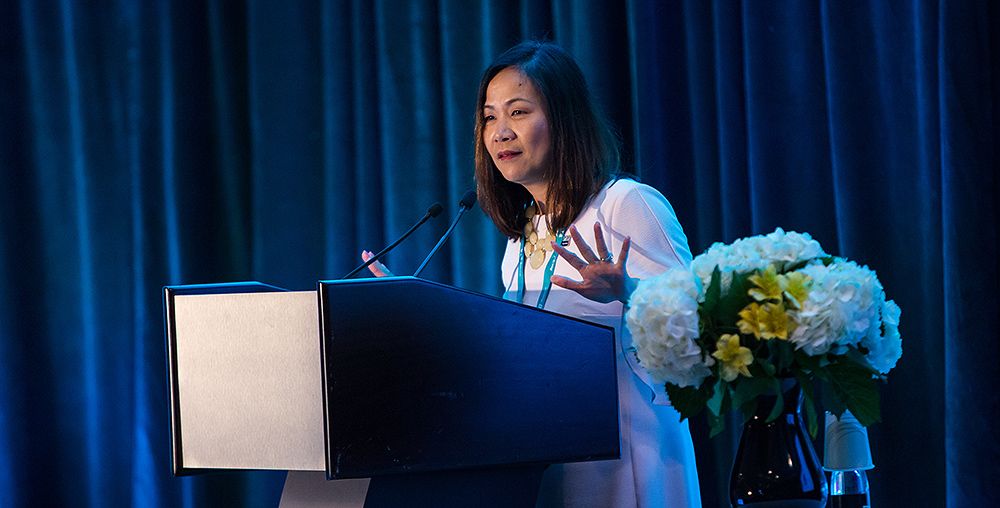FIU Business dean Joanne Li urged educators and university leaders at the EFMD Global Network Americas Annual Conference to make the pandemic’s impact an opportunity to move higher education forward.

“Never let a good crisis go to waste,” said Li. “We have to learn from it, come out better and stronger.”
The EFMD, an international network of select business schools and corporate universities, presented the “Lessons Through Crisis” conference virtually December 7-9, 2020. Event participants and speakers examined the new landscape for schools, professors and students.
During the closing keynote, Li discussed the future of higher education, adapting to crisis and living in a new reality.
She pointed out that higher education is losing the population’s trust. Families, the business community, politicians and now students are asking why it’s so expensive, questioning if they really need a degree. “It’s our responsibility to change the narrative of higher education,” she added.
Among the factors that must be considered are student’s discretionary income; the digital divide that limits students who cannot access reliable internet; and economic disparity that results in some students taking a skip year.
“It’s a glaring reality that we can’t ignore,” Li said. “Students are a diamond in the rough and higher education can also learn from students.”
One of the sectors where the COVID-19 crisis had a deep impact is the need to get faculty and staff ready for sophisticated programs that increase the use of new technology.
As the fall 2020 semester began amidst the COVID-19 pandemic, FIU Business launched HyFlex, a course delivery model that offers hybrid classes in a flexible structure. Students can participate face-to-face in the classroom, remotely with synchronous video streaming or watch a recording of their classes.
Programs like HyFlex and similar ones implemented at other universities, Li noted, create knowledge and expand the resources available to students. Still, there’s a need to equip professors with the pedagogies that help them connect with students.
“We fail to address the learn-centric model, to make an effort in developing it,” Li insisted. “We have to understand the learner – the mental stress which makes it difficult for them to focus, a lack of motivation, their need to see professors.”





